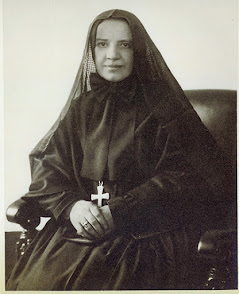Week 8 - Movie Review: Cabrini
Cabrini: A Story of Unique Strengths and Unwavering Hope
Overview
Alejandro Monteverde’s Cabrini presents the life of Frances Xavier Cabrini, the first American saint, in a way that balances the grim realities of immigrant poverty with an overarching tone of hope. The film focuses on her mission to aid Italian immigrants in late 19th-century New York by establishing schools, hospitals, and orphanages. Cabrini’s faith and resilience shine as central themes, inspiring viewers to reflect on service, perseverance, and the unique contributions of individuals within society.
While the movie is not particularly groundbreaking in terms of production value, it succeeds in portraying Cabrini as a figure of determination and compassion. Cristiana Dell’Anna’s performance brings warmth and dignity to the character, while the script carefully navigates her challenges and triumphs. For families and communities rooted in faith, Cabrini offers a meaningful exploration of historical values and spiritual devotion.
Impact
What stood out most to me was Cabrini’s response to the mayor of New York, who suggested she could have been a great politician. She replied, “Men can never do what we do.” This moment sparked a lively debate in class, with some viewing the line as overly feminist or activist. Reflecting on it, I realized how much my perspective has changed over the years.
Instead of perceiving it as a politically charged statement, I saw it as an affirmation of the distinct strengths of men and women. Witnessing my wife’s resilience through childbirth and parenting has given me a profound appreciation for the unique qualities women bring to society—qualities that complement the strengths of men. Cabrini’s statement resonated deeply with me, not as a challenge to masculinity but as a celebration of the essential roles both men and women play in building a flourishing community.
 Conclusion
Conclusion
Cabrini left me pondering the balance between historical truth and artistic license. While the dramatized moments, such as Cabrini’s interaction with the fictional Mayor Gould or the famous line “Men can never do what we do,” added emotional weight, they also prompted questions about accuracy. For a story rooted in history, there’s an inherent tension between honoring the past and crafting a narrative that resonates with contemporary audiences.







Comments
Post a Comment